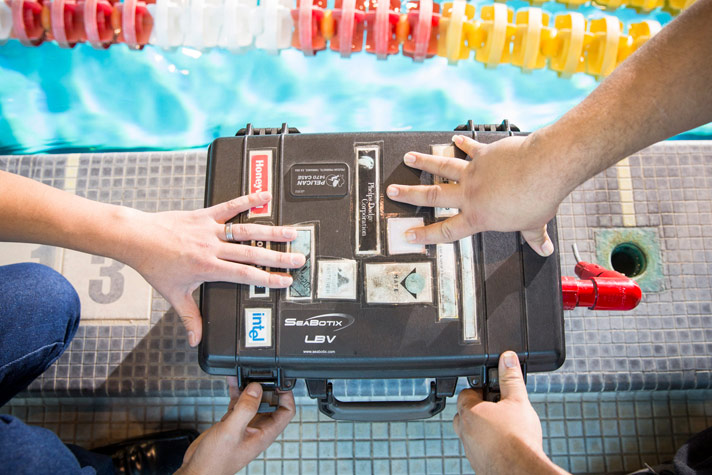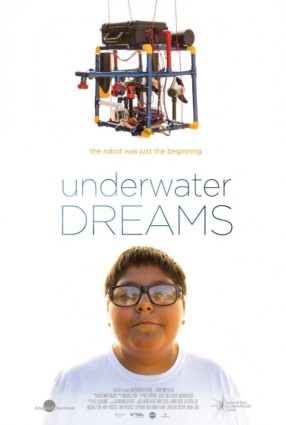
Robohub.org
Underwater Dreams: The story of undocumented teens who win underwater robot competition

Underwater Dreams is a documentary that follows a team of undocumented students from an Arizona high school and shows their perseverance and ingenuity to win a NASA- and ONR-sponsored underwater robotics competition. President Obama filmed a 1-minute introduction to the documentary and hosted a screening at the White House to a group of 100 students during National Robotics Week.
His message underscored the extraordinary contributions immigrants – including the four team members that won the competition – have made to America.
https://youtu.be/tZ9MVbQiN-k
The Marine Advanced Technology Education Robotics Competition is an annual underwater robotics competition and was established to engage students in STEM and expose them to science and technology careers, encourage them to apply technical, teamwork and problem solving skills, and to provide funds, materials and technical expertise to support their learning experiences.
 At the White House screening, the original four students spoke and mingled. A White House press release described them and the event:
At the White House screening, the original four students spoke and mingled. A White House press release described them and the event:
These pioneering robotics teammates, who are now continuing their education and earning a living here in the United States, joined the students and spoke to them about the challenges they faced as immigrants. One of their challengers from the robotics competition participated in this reunion as well! The Carl Hayden team’s passion for exploring, tinkering, and constructing a robot transformed the idea of engineering from an abstract concept to something tangible they could master, all while in high school. Engineering changed their lives, and the lives of their families and communities, forever.
In a previous story about the movie Spare Parts – with George Lopez, Jamie Lee Curtis, Marisa Tomei and four young Hispanic actors – the plight of the real students to stay in the US, continue their educations and get gainful employment was poignant, supremely difficult … and illuminating.
Their struggles after graduating from high school were reported by Joshua Davis first in a NY Times Op-ed piece, later in a book, and finally in the Spare Parts movie:
- Lorenzo Santillan considered becoming a mechanical engineer, but instead earned a cheaper associate degree in cooking. Today he works as a line cook.
- Luis Aranda studied cooking as well but did not complete a degree and now works as a janitor.
- Cristian Arcega, the most technically skilled member of the team, made it to Arizona State University on a scholarship. But in 2006, Arizona voters passed Proposition 300, an anti-immigrant measure that prohibits undocumented students from receiving any state financial aid or qualifying for in-state tuition — more than tripling his tuition. He dropped out and is now unemployed.
- Oscar Vazquez’s story is the most dramatic. He also had a scholarship to A.S.U. He was a sophomore when Proposition 300 passed, and managed to stay in school only by piecing together more scholarships, all while leading the university’s robotics team to regional championships. He graduated with a degree in mechanical engineering in 2009 and applied for legal residency. Not only was his application denied, but he was also summarily banned from the United States for 10 years for living here without a visa. He ended up working on an assembly line in Mexico. After a year, his ban was reversed when a US Senator from another state interceded on his behalf. Mr. Vazquez returned, enlisted in the Army, and served a tour of combat duty in Afghanistan. He is finally a citizen, and repairs trains in Montana for the railroad company BNSF.
Underwater Dreams is available through iTunes, Amazon and rental streaming.
If you liked this article, you may also be interested in:
- 12 favorite robot movies – new and old
- While most robots are either geek or jock, CHAPPiE is a lesson in sexy
- A cruel waste of STEM talent
- Ex Machina: When Turing meets Bechdel test
See all the latest robotics news on Robohub, or sign up for our weekly newsletter.
tags: c-Arts-Entertainment, film


